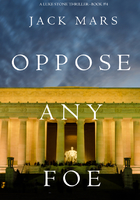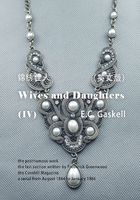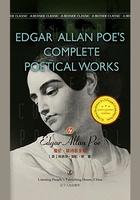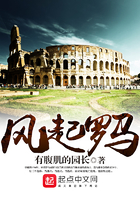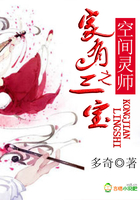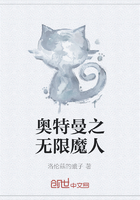The next day, the 30th of October, all was ready for the proposed exploring expedition, which recent events had rendered so necessary. In fact, things had so come about that the settlers in Lincoln Island no longer needed help for themselves, but were even able to carry it to others.
It was therefore agreed that they should ascend the Mercy as far as the river was navigable. A great part of the distance would thus be traversed without fatigue, and the explorers could transport their provisions and arms to an advanced point in the west of the island.
It was necessary to think not only of the things which they should take with them, but also of those which they might have by chance to bring back to Granite House. If there had been a wreck on the coast, as was supposed, there would be many things cast up, which would be lawfully their prizes. In the event of this, the cart would have been of more use than the light canoe, but it was heavy and clumsy to drag, and therefore more difficult to use; this led Pencroft to express his regret that the chest had not contained, besides "his halfpound of tobacco," a pair of strong New Jersey horses, which would have been very useful to the colony!
The provisions, which Neb had already packed up, consisted of a store of meat and of several gallons of beer, that is to say enough to sustain them for three days, the time which Harding assigned for the expedition. They hoped besides to supply themselves on the road, and Neb took care not to forget the portable stove.
The only tools the settlers took were the two woodmen's axes, which they could use to cut a path through the thick forests, as also the instruments, the telescope and pocket-compass.
For weapons they selected the two flint-lock guns, which were likely to be more useful to them than the percussion fowling-pieces, the first only requiring flints which could be easily replaced, and the latter needing fulminating caps, a frequent use of which would soon exhaust their limited stock. However, they took also one of the carbines and some cartridges. As to the powder, of which there was about fifty pounds In the barrel, a small supply of it had to be taken, but the engineer hoped to manufacture an explosive substance which would allow them to husband it. To the firearms were added the five cutlasses well sheathed in leather, and, thus supplied, the settlers could venture into the vast forest with some chance of success.
It is useless to add that Pencroft, Herbert, and Neb, thus armed, were at the summit of their happiness, although Cyrus Harding made them promise not to fire a shot unless it was necessary. At six in the morning the canoe put off from the shore; all had embarked, including Top, and they proceeded to the mouth of the Mercy.
The tide had begun to come up half an hour before. For several hours, therefore, there would be a current, which it was well to profit by, for later the ebb would make it difficult to ascend the river. The tide was already strong, for in three days the moon would be full, and it was enough to keep the boat in the center of the current, where it floated swiftly along between the high banks without its being necessary to increase its speed by the aid of the oars. In a few minutes the explorers arrived at the angle formed by the Mercy and exactly at the place where, seven months before, Pencroft had made his first raft of wood.
After this sudden angle the river widened and flowed under the shade of great evergreen firs.
The aspect of the banks was magnificent. Cyrus Harding and his companions could not but admire the lovely effects so easily produced by nature with water and trees. As they advanced the forest element diminished. On the right bank of the river grew magnificent specimens of the ulmaceae tribe, the precious elm, so valuable to builders, and which withstands well the action of water. Then there were numerous groups belonging to the same family, among others one in particular, the fruit of which produces a very useful oil. Further on, Herbert remarked the lardizabala, a twining shrub which, when bruised in water, furnishes excellent cordage; and two or three ebony trees of a beautiful black, crossed with capricious veins.
From time to time, in certain places where the landing was easy, the canoe was stopped, when Gideon Spilett, Herbert, and Pencroft, their guns in their hands, and preceded by Top, jumped on shore. Without expecting game, some useful plant might be met with, and the young naturalist was delighted with discovering a sort of wild spinach, belonging to the order of chenopodiaceae, and numerous specimens of cruciferae, belonging to the cabbage tribe, which it would certainly be possible to cultivate by transplanting. There were cresses, horseradish, turnips, and lastly, little branching hairy stalks, scarcely more than three feet high, which produced brownish grains.
Do you know what this plant is?" asked Herbert of the sailor.
"Tobacco!" cried Pencroft, who evidently had never seen his favorite plant except in the bowl of his pipe.
"No, Pencroft," replied Herbert; "this is not tobacco, it is mustard."
"Mustard be hanged!" returned the sailor; "but if by chance you happen to come across a tobacco-plant, my boy, pray don't scorn that!"
"We shall find it some day!" said Gideon Spilett.
"Well!" exclaimed Pencroft, "when that day comes, I do not know what more will be wanting in our island!"
These different plants, which had been carefully rooted up, were carried to the canoe, where Cyrus Harding had remained buried in thought.
The reporter, Herbert, and Pencroft in this manner frequently disembarked, sometimes on the bank, sometimes on the left bank of the Mercy.
The latter was less abrupt, but the former more wooded. The engineer ascertained by consulting his pocket-compass that the direction of the river from the first turn was obviously southwest and northeast, and nearly straight for a length of about three miles. But it was to be supposed that this direction changed beyond that point, and that the Mercy continued to the north-west, towards the spurs of Mount Franklin, among which the river rose.
During one of these excursions, Gideon Spilett managed to get hold of two couples of living gallinaceae. They were birds with long, thin beaks, lengthened necks, short wings, and without any appearance of a tail. Herbert rightly gave them the name of tinamous, and it was resolved that they should be the first tenants of their future poultry-yard.
But till then the guns had not spoken, and the first report which awoke the echoes of the forest of the Far West was provoked by the appearance of a beautiful bird, resembling the kingfisher.
"I recognize him!" cried Pencroft, and it seemed as if his gun went off by itself. "What do you recognize?" asked the reporter.
"The bird which escaped us on our first excursion, and from which we gave the name to that part of the forest."
"A jacamar!" cried Herbert.
It was indeed a jacamar, of which the plumage shines with a metallic luster. A shot brought it to the ground, and Top carried it to the canoe. At the same time half a dozen lories were brought down. The lory is of the size of a pigeon, the plumage dashed with green, part of the wings crimson, and its crest bordered with white. To the young boy belonged the honor of this shot, and he was proud enough of it. Lories are better food than the jacamar, the flesh of which is rather tough, but it was difficult to persuade Pencroft that he had not killed the king of eatable birds. It was ten o'clock in the morning when the canoe reached a second angle of the Mercy, nearly five miles from its mouth. Here a halt was made for breakfast under the shade of some splendid trees. The river still measured from sixty to seventy feet in breadth, and its bed from five to six feet in depth. The engineer had observed that it was increased by numerous affluents, but they were unnavigable, being simply little streams. As to the forest, including Jacamar Wood, as well as the forests of the Far West, it extended as far as the eye could reach. In no place, either in the depths of the forests or under the trees on the banks of the Mercy, was the presence of man revealed. The explorers could not discover one suspicious trace. It was evident that the woodman's axe had never touched these trees, that the pioneer's knife had never severed the creepers hanging from one trunk to another in the midst of tangled brushwood and long grass. If castaways had landed on the island, they could not have yet quitted the shore, and it was not in the woods that the survivors of the supposed shipwreck should be sought.
The engineer therefore manifested some impatience to reach the western coast of Lincoln Island, which was at least five miles distant according to his estimation.
The voyage was continued, and as the Mercy appeared to flow not towards the shore, but rather towards Mount Franklin, it was decided that they should use the boat as long as there was enough water under its keel to float it. It was both fatigue spared and time gained, for they would have been obliged to cut a path through the thick wood with their axes. But soon the flow completely failed them, either the tide was going down, and it was about the hour, or it could no longer at this distance from the mouth of the Mercy. They had therefore to make use of the oars. Herbert and Neb each took one, and Pencroft took the scull. The forest soon became less dense, the trees grew further apart and often quite isolated. But the further they were from each other the more magnificent they appeared, profiting, as they did, by the free, pure air which circulated around them.
What splendid specimens of the flora of this latitude! Certainly their presence would have been enough for a botanist to name without hesitation the parallel which traversed Lincoln Island. "Eucalypti!" cried Herbert.
They were, in fact, those splendid trees, the giants of the extratropical zone, the congeners of the Australian and New Zealand eucalyptus, both situated under the same latitude as Lincoln Island. Some rose to a height of two hundred feet. Their trunks at the base measured twenty feet in circumference, and their bark was covered by a network of farrows containing a red, sweet-smelling gum. Nothing is more wonderful or more singular than those enormous specimens of the order of the myrtaceae, with their leaves placed vertically and not horizontally, so that an edge and not a surface looks upwards, the effect being that the sun's rays penetrate more freely among the trees.
The ground at the foot of the eucalypti was carpeted with grass, and from the bushes escaped flights of little birds, which glittered in the sunlight like winged rubies.
"These are something like trees!" cried Neb; "but are they good for anything?"
"Pooh!" replied Pencroft. "Of course there are vegetable giants as well as human giants, and they are no good, except to show themselves at fairs!"
"I think that you are mistaken, Pencroft," replied Gideon Spilett, "and that the wood of the eucalyptus has begun to be very advantageously employed in cabinet-making."
"And I may add," said Herbert, "that the eucalyptus belongs to a family which comprises many useful members; the guava-tree, from whose fruit guava jelly is made; the clove-tree, which produces the spice; the pomegranate-tree, which bears pomegranates; the Eugeacia Cauliflora, the fruit of which is used in making a tolerable wine; the Ugui myrtle, which contains an excellent alcoholic liquor; the Caryophyllus myrtle, of which the bark forms an esteemed cinnamon; the Eugenia Pimenta, from whence comes Jamaica pepper; the common myrtle, from whose buds and berries spice is sometimes made; the Eucalyptus manifera, which yields a sweet sort of manna; the Guinea Eucalyptus, the sap of which is transformed into beer by fermentation; in short, all those trees known under the name of gum-trees or iron-bark trees in Australia, belong to this family of the myrtaceae, which contains forty-six genera and thirteen hundred species!"
The lad was allowed to run on, and he delivered his little botanical lecture with great animation. Cyrus Harding listened smiling, and Pencroft with an indescribable feeling of pride.
"Very good, Herbert," replied Pencroft, "but I could swear that all those useful specimens you have just told us about are none of them giants like these!"
"That is true, Pencroft."
"That supports what I said," returned the sailor, "namely, that these giants are good for nothing!"
"There you are wrong, Pencroft," said the engineer; "these gigantic eucalypti, which shelter good for something."
"And what is that?"
"To render the countries which they inhabit healthy. Do you know what they are called in Australia and New Zealand?"
"No, captain."
"They are called 'fever trees.'" "Because they give fevers?" "No, because they prevent them!"
"Good. I must note that," said the reporter.
"Note it then, my dear Spilett; for it appears proved that the presence of the eucalyptus is enough to neutralize miasmas. This natural antidote has been tried in certain countries in the middle of Europe and the north of Africa where the soil was absolutely unhealthy, and the sanitary condition of the inhabitants has been gradually ameliorated. No more intermittent fevers prevail in the regions now covered with forests of the myrtaceae. This fact is now beyond doubt, and it is a happy circumstance for us settlers in Lincoln Island."
"Ah! what an island! What a blessed island!" cried Pencroft. "I tell you, it wants nothing unless it is "
"That will come, Pencroft, that will be found," replied the engineer; "but now we must continue our voyage and push on as far as the river will carry our boat!"
The exploration was therefore continued for another two miles in the midst of country covered with eucalypti, which predominated in the woods of this portion of the island. The space which they occupied extended as far as the eye could reach on each side of the Mercy, which wound along between high green banks. The bed was often obstructed by long weeds, and even by pointed rocks, which rendered the navigation very difficult. The action of the oars was prevented, and Pencroft was obliged to push with a pole. They found also that the water was becoming shallower and shallower, and that the canoe must soon stop. The sun was already sinking towards the horizon, and the trees threw long shadows on the ground. Cyrus Harding, seeing that he could not hope to reach the western coast of the island in one journey, resolved to camp at the place where any further navigation was prevented by want of water. He calculated that they were still five or six miles from the coast, and this distance was too great for them to attempt during the night in the midst of unknown woods.
The boat was pushed on through the forest, which gradually became thicker again, and appeared also to have more inhabitants; for if the eyes of the sailor did not deceive him, he thought he saw bands of monkeys springing among the trees. Sometimes even two or three of these animals stopped at a little distance from the canoe and gazed at the settlers without manifesting any terror, as if, seeing men for the first time, they had not yet learned to fear them. It would have been easy to bring down one of these quadramani with a gunshot, and Pencroft was greatly tempted to fire, but Harding opposed so useless a massacre. This was prudent, for the monkeys, or apes rather, appearing to be very powerful and extremely active, it was useless to provoke an unnecessary aggression, and the creatures might, ignorant of the power of the explorers' firearms, have
them. It is true that the sailor considered the monkeys from a purely alimentary point of view,those animals which are herbivorous make very excellent game; but since they had an abundant supply of provisions, it was a pity to waste their ammunition.
Towards four o'clock, the navigation of the Mercy became exceedingly difficult, for its course was obstructed by aquatic plants and rocks. The banks rose higher and higher, and already they were approaching the spurs of Mount Franklin. The source could not be far off, since it was fed by the water from the southern slopes of the mountain.
"In a quarter of an hour," said the sailor, "we shall be obliged to stop, captain." "Very well, we will stop, Pencroft, and we will make our encampment for the night." "At what distance are we from Granite House?" asked Herbert.
"About seven miles," replied the engineer, "taking into calculation, however, the detours of the river, which has carried us to the northwest."
"Shall we go on?" asked the reporter.
"Yes, as long as we can," replied Cyrus Harding. "To-morrow, at break of day, we will leave the canoe, and in two hours I hope we shall cross the distance which separates us from the coast, and then we shall have the whole day in which to explore the shore."
"Go ahead!" replied Pencroft.
But soon the boat grated on the stony bottom of the river, which was now not more than twenty feet in breadth. The trees met like a bower overhead, and caused a half-darkness. They also heard the noise of a waterfall, which showed that a few hundred feet up the river there was a natural barrier.
Presently, after a sudden turn of the river, a cascade appeared through the trees. The canoe again touched the bottom, and in a few minutes it was moored to a trunk near the right bank.
It was nearly five o'clock. The last rays of the sun gleamed through the thick foliage and glanced on the little waterfall, making the spray sparkle with all the colors of the rainbow. Beyond that, the Mercy was lost in the bushwood, where it was fed from some hidden source. The different streams which flowed into it increased it to a regular river further down, but here it was simply a shallow, limpid brook.
It was agreed to camp here, as the place was charming. The colonists disembarked, and a fire was soon lighted under a clump of trees, among the branches of which Cyrus Harding and his companions could, if it was necessary, take refuge for the night.
Supper was quickly devoured, for they were very hungry, and then there was only sleeping to think of. But, as roarings of rather a suspicious nature had been heard during the evening, a good fire was made up for the night, so as to protect the sleepers with its crackling flames. Neb and Pencroft also watched by turns, and did not spare fuel. They thought they saw the dark forms of some wild animals prowling round the camp among the bushes, but the night passed without incident, and the next day, the 31st of October, at five o'clock in the morning, all were on foot, ready for a start.


